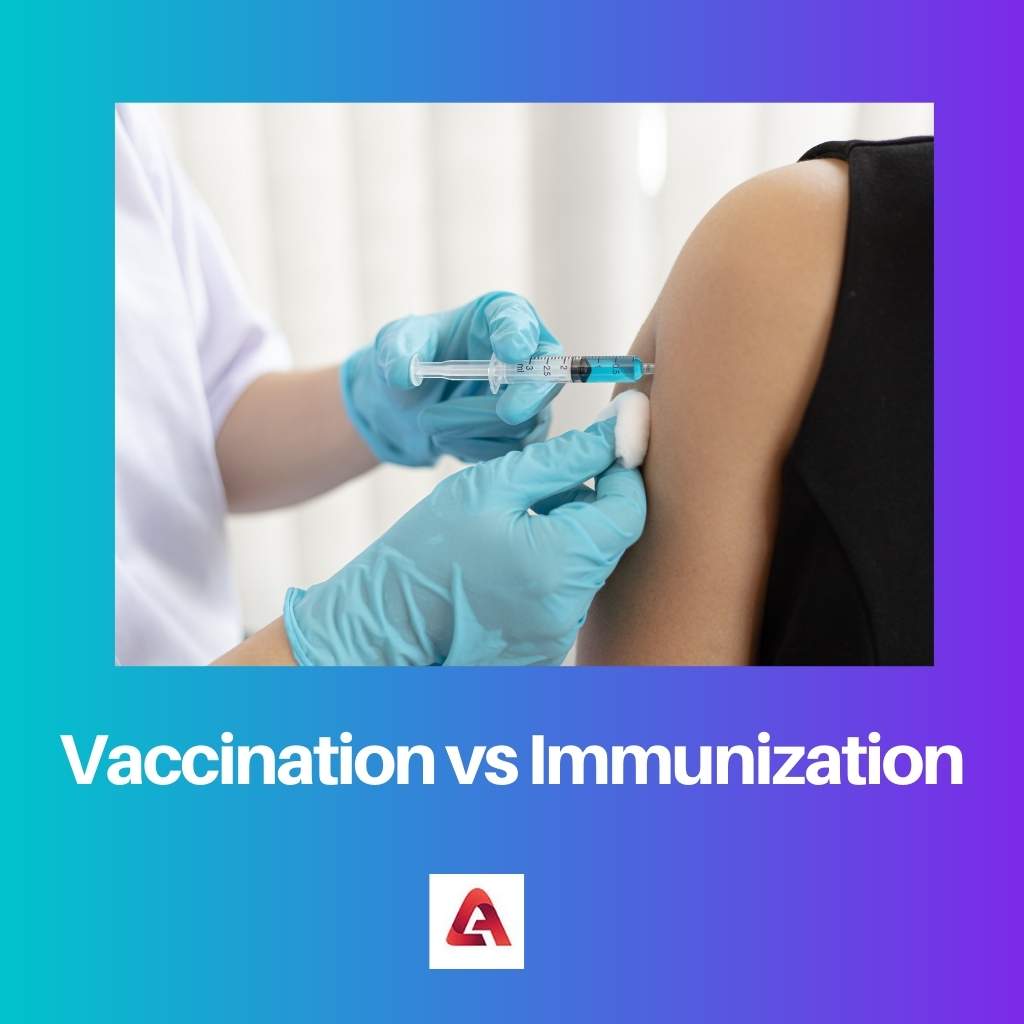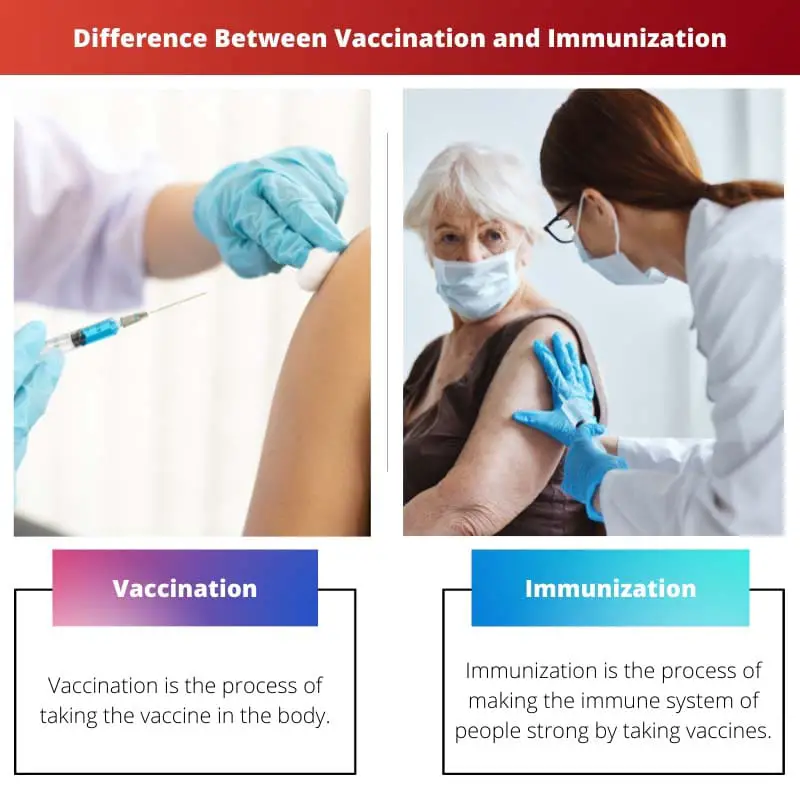Several diseases are discovered daily, and it is becoming difficult to survive with a healthy body due to all the injections and viruses.
To fight these diseases and viruses, doctors work with all their strength to invent new medicines, but in some cases, the virus or disease is so dangerous that it may require vaccinations rather than medicines.
These vaccinations can be injected or taken directly (orally) depending on the type of virus or the vaccinations.
When these enter the body, it strengthens the immune system to fight the infection or virus in the body. Now vaccination sometimes gets confused with the word immunization as both of them are related to making the strong body fight the illness.
Key Takeaways
- Vaccination is introducing a vaccine into the body to create immunity against a specific disease.
- Immunization is making a person immune or resistant to disease, including vaccination.
- Vaccination is a type of immunization, but not all immunization requires vaccination.
Vaccination vs Immunization
Vaccination is a term used to describe the process of administering a vaccine to stimulate an immune response and produce immunity against a specific disease. Immunization is the overall process of becoming immune to a disease through vaccination, previous infection, or any other means.

Vaccination is the process of taking the vaccine in the body. Vaccination is the process of making the microbes injected into the body, except injected microbes can also be taken orally.
It is required for major and dangerous diseases and infections that are lethal for humans. It does not guarantee full recovery from the disease. It might not work for some, while it may do for others.
Immunization is the process of making the immune system of people strong by taking vaccines. People need a strong immune system to recover from any infection or disease.
Unless it is next to impossible for them to recover completely, sometimes people die due to weaker immune systems. It is not always guaranteed how it can be developed, but different successful measures exist.
Comparison Table
| Parameters of Comparison | Vaccination | Immunization |
|---|---|---|
| Process | When microbes are injected | It starts after the injection of microbes incomplete |
| How it is done | Injected or taken orally | Not in any administrative way |
| Disease prevention | Particular microbes are injected for this. | After the body starts reacting with the microbes. |
| Development | By doctors and scientists | By vaccine. |
| Type of disease. | Not for small and common issues | It is required for every disease. |
What is Vaccination?
Vaccination is very important to make sure the disease or the infection is not spread among the people.
It is taken to prevent the spreading of certain types of diseases, and there is a chance of them coming back if the vaccination is not provided and hence the person is capable of being a host of that disease.
In some cases, they are given to children, so there should be zero chances of infection. But there can be several vaccinations that might not be suitable for the children, and hence they should not be given them.
When the vaccinations are injected into people, there might be minor side effects, such as fever, body pain, headache, dizziness, etc., but all of them do not remain for more than 3 or 4 days.
But in general, there is no dangerous side effect of vaccinations. And as rumours say, it might cause the disease it is made to prevent, which is completely false.

What is Immunization?
It is the process of making the immune system strong by exposing the body to the vaccine, which helps it in developing resistance to the disease.
Any particular vaccination does not guarantee immunization, but few vaccinations have more than a 70 % success rate in making the body immune from the disease. A few diseases that have vaccinations are coronavirus, smallpox, tetanus, etc.
Process of Immunization:
- It starts by taking the vaccination in the body, which results in making it resistant to infections or diseases.
- The vaccine starts working, and the body develops immunity against disease.
- Few vaccinations have been proven to save several lives, decreasing mortality.
Every individual requires immunization to keep their body healthy and not be a carrier of any disease. There are side effects of immunization as well, but only in starting 3 or 4 days, and side effects are the same as of vaccinations.

Differences Between Vaccination and Immunization
- Both of them can be easily differentiated based on their process, meaning, in the case of vaccination, the process is of injecting or taking the microbes in the body, whereas immunization is the later process that starts after the injection is completed and the microbe’s starts reacting in the body.
- Vaccination is a process that can be completed in two ways, by injecting directly into the body or by taking microbes orally, whereas immunization is a process that does not take place in any administrative way.
- Both of them are healthy or required by the body to prevent the body from a certain infection or disease. The vaccination is given to the people, whereas immunization is the process of making the immune system of a person strong to resist a certain condition, and for this, the vaccination is provided.
- Both of them are developed by doctors and scientists, directly and indirectly. Vaccination is directly developed by doctors and other medical staff, while immunizations are developed indirectly by doctors as they result only in vaccines.
- Both of them are required for diseases, but vaccination is the process only required for major diseases and infections. It is not taken for small diseases, whereas the immune needs to be strong for every type of disease.

- https://www.tandfonline.com/doi/abs/10.1080/10810730500228847
- https://www.taylorfrancis.com/chapters/edit/10.4324/9780203791950-8/value-vaccination-david-bloom-david-canning-mark-weston



